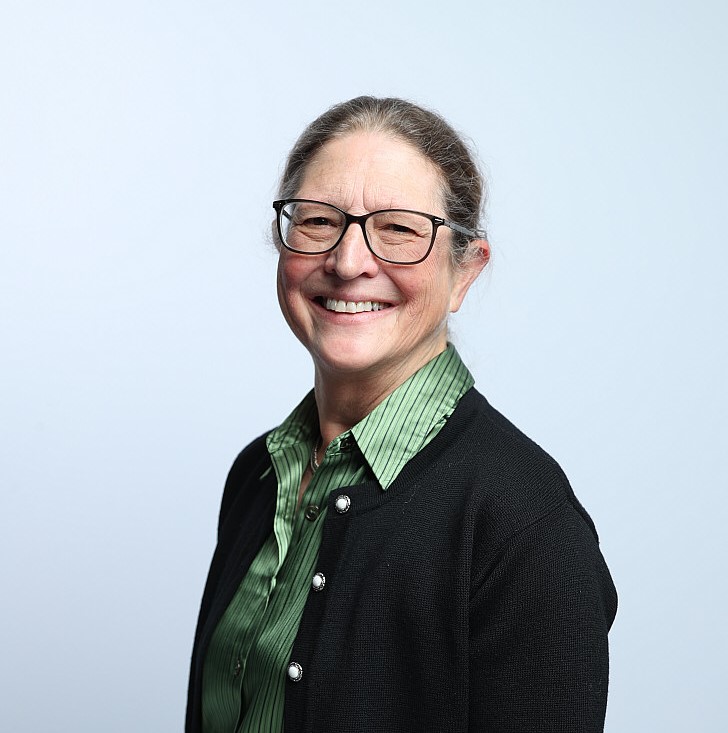
Ask a Publisher AMA with Peter Rubie
Thursday, August 1
12 PM PDT
Zoom link provided upon registration
As everyone probably knows, you or your agent needs to get your book or proposal into the hands of an interested editor; that’s the first hurdle.
A well-crafted proposal, an agent with good relationships, and choosing the right editors to approach are the first steps.
What most would-be authors don’t know is that the editor has to turn around and sell you to an editorial board. The sales management, more often than not, makes the decisions.
If sales and marketing think they can sell your book, then you’ve got a wonderful chance of getting published.
So, how do you sell your book to a publisher?
If it’s your first book, you have no Nielsen Bookscan number to get in the way. That can be a blessing, but you have to prove that you are an “influencer” that can sell your book and provide the publisher’s sales force with the ammo they need to go out to the trade.
Publishing veteran Peter Rubie will help you navigate the rapids of book publishing so you can find the perfect home for your books. Bring all your questions about book publishing so you can learn from some of the best in the business!
To register, please visit the event page and fill out the form at the bottom of the page!

Fall Back Into Your Projects Mixer
Thursday, August 22
12 – 1 PM PDT
Zoom link provided upon registration
Need motivation to get back on track with your writing projects? Ready to take on the rest of 2024? Join WNBA-San Francisco for our August Share and Tell Mixer.
During this mixer, everyone will have a few minutes to:
- Share: Who You Are & Your Biggest Summer Wins
- Tell: What You Are Working on and How Our Community Can Help You Reach your 2024 Goals. This can be a service you are offering or seeking, reviews or editing for your book, questions about next steps, etc. Be sure to sign the virtual guest book and share your contact info.
As our networking ambassador, Debra Eckerling says: “You can’t reach your goals on your own. You need your peeps!” Our growing community of writers and publishing professionals are the key to making these connections happen.
It’s a MIXER, so share this post and bring a literary friend or two to join the virtual fun! We appreciate our members! We’d love for you to join us so we can hear about how this year went for you, and your hopes for the fall to come.
To register, please visit the event page and fill out the form at the bottom of the page!



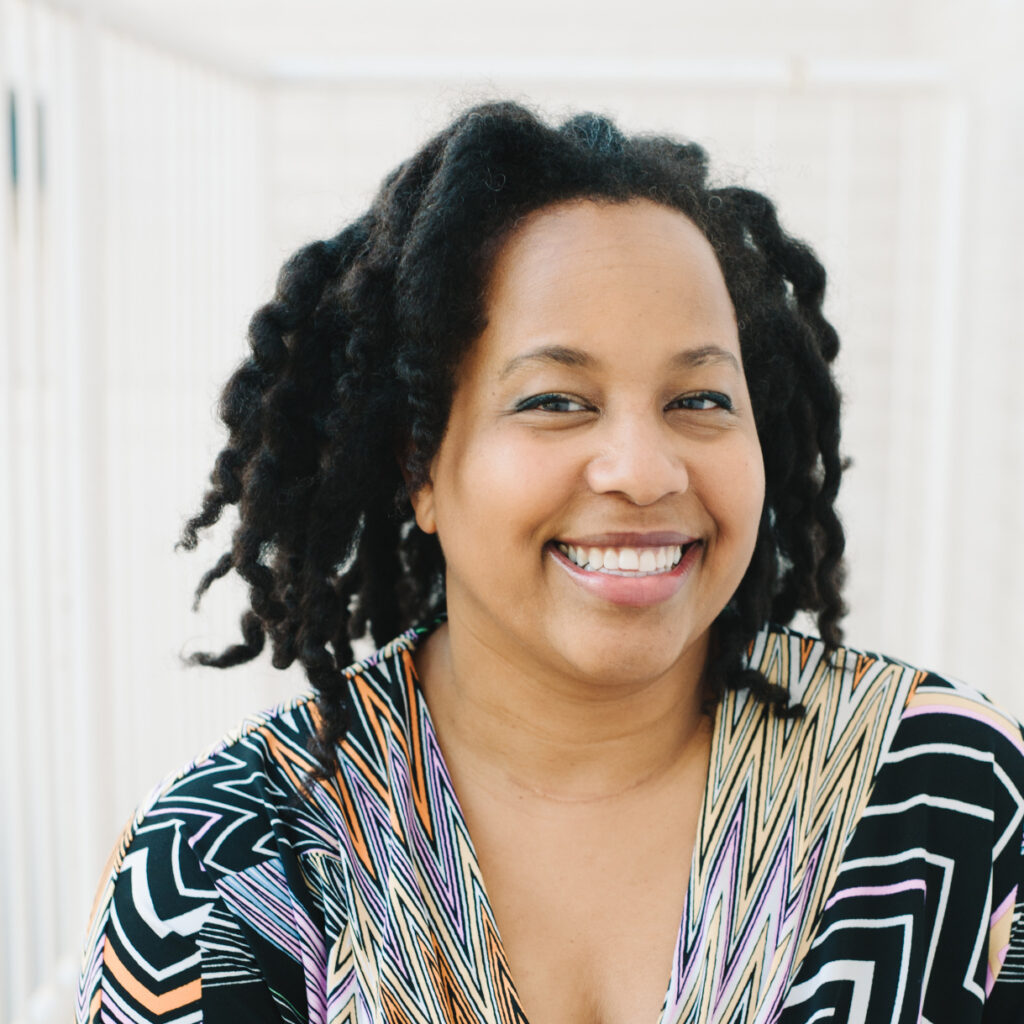 Ellen McBarnette is a lifelong writer whose nonfiction work has been published as testimony, fact sheets, and opinion pieces for organizations that include the Sierra Club and the American Bar Association. A professional storyteller, she is a recent transplant from Washington, DC where she ran the Arlington Creative Nonfiction Writers Group. She now runs the Beta Readers and Writers Group and is an active participant in critique groups in the Bay. She lives in Hayward with her partner Ben and their cat Java.
Ellen McBarnette is a lifelong writer whose nonfiction work has been published as testimony, fact sheets, and opinion pieces for organizations that include the Sierra Club and the American Bar Association. A professional storyteller, she is a recent transplant from Washington, DC where she ran the Arlington Creative Nonfiction Writers Group. She now runs the Beta Readers and Writers Group and is an active participant in critique groups in the Bay. She lives in Hayward with her partner Ben and their cat Java. Mary Mackey is the New York Times bestselling author of fourteen novels, including The Earthsong Series—four novels which describe how the peaceful Goddess-worshiping people of Prehistoric Europe fought off patriarchal nomad invaders (The Village of Bones, The Year The Horses Came, The Horses at the Gate, and The Fires of Spring). They have made The New York Times and San Francisco Chronicle Bestseller Lists, been translated into twelve foreign languages, and sold over a million and a half copies. She has published several collections of poetry, including Sugar Zone and The Jaguars That Prowl Our Dreams. You can get the latest news about Mary’s books, public appearances, newsletter, and writing advice at marymackey.com.
Mary Mackey is the New York Times bestselling author of fourteen novels, including The Earthsong Series—four novels which describe how the peaceful Goddess-worshiping people of Prehistoric Europe fought off patriarchal nomad invaders (The Village of Bones, The Year The Horses Came, The Horses at the Gate, and The Fires of Spring). They have made The New York Times and San Francisco Chronicle Bestseller Lists, been translated into twelve foreign languages, and sold over a million and a half copies. She has published several collections of poetry, including Sugar Zone and The Jaguars That Prowl Our Dreams. You can get the latest news about Mary’s books, public appearances, newsletter, and writing advice at marymackey.com.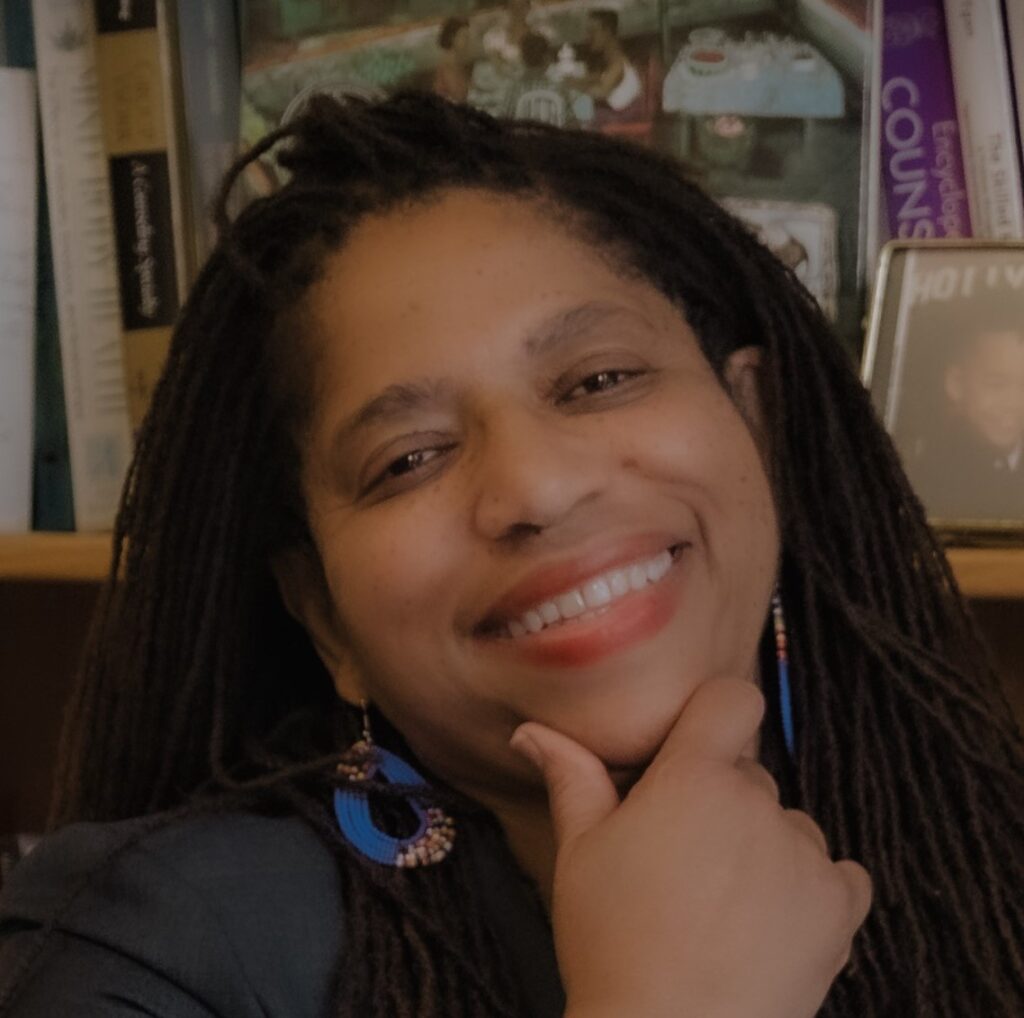 Sheila Smith McKoy, PHD is an award-winning poet, fiction writer, and filmmaker. She is the recipient of the 2020 Muriel Craft Bailey Memorial Prize in poetry. Her poetry collections include The Bones Beneath (Black Lawrence Press, 2024) One Window’s Light: A Haiku Collection, a collaboration of five Black poets; the collection won the 2017 Haiku Society of America’s Merit Book Award for best haiku anthology. In addition to her poetry and fiction, Smith McKoy has authored and edited numerous scholarly works. She focuses on vital conversations about equity, inclusion and the Black speculative. A native of Raleigh, NC, she lives in the San Francisco Bay Area.
Sheila Smith McKoy, PHD is an award-winning poet, fiction writer, and filmmaker. She is the recipient of the 2020 Muriel Craft Bailey Memorial Prize in poetry. Her poetry collections include The Bones Beneath (Black Lawrence Press, 2024) One Window’s Light: A Haiku Collection, a collaboration of five Black poets; the collection won the 2017 Haiku Society of America’s Merit Book Award for best haiku anthology. In addition to her poetry and fiction, Smith McKoy has authored and edited numerous scholarly works. She focuses on vital conversations about equity, inclusion and the Black speculative. A native of Raleigh, NC, she lives in the San Francisco Bay Area.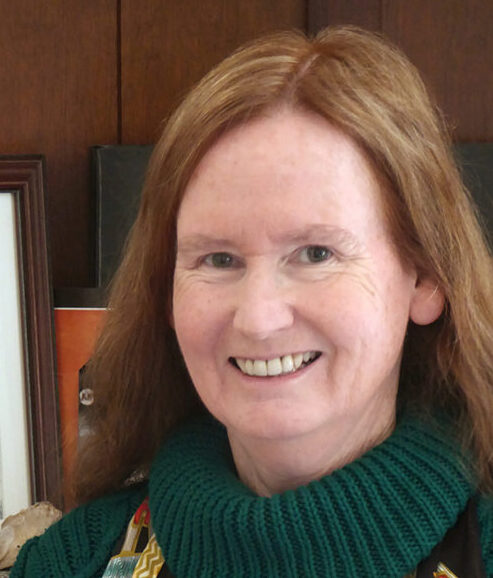 Vanessa MacLaren-Wray writes science fiction and fantasy about people—human and otherwise—connecting in our complex universe. She’s the author of the Patchwork Universe series: All That Was Asked, Shadows of Insurrection, and Flames of Attrition. She also writes for the Truck Stop at the Center of the Galaxy shared-world series and guest-hosts for the podcast Small Publishing in a Big Universe. She’s an active member of the Science Fiction and Fantasy Writers Association, the California Writers Club, and (of course) the WNBA. When not arguing with her cats, she works on new stories, her email journal, Messages from the Oort Cloud, and her website, Cometary Tales.
Vanessa MacLaren-Wray writes science fiction and fantasy about people—human and otherwise—connecting in our complex universe. She’s the author of the Patchwork Universe series: All That Was Asked, Shadows of Insurrection, and Flames of Attrition. She also writes for the Truck Stop at the Center of the Galaxy shared-world series and guest-hosts for the podcast Small Publishing in a Big Universe. She’s an active member of the Science Fiction and Fantasy Writers Association, the California Writers Club, and (of course) the WNBA. When not arguing with her cats, she works on new stories, her email journal, Messages from the Oort Cloud, and her website, Cometary Tales.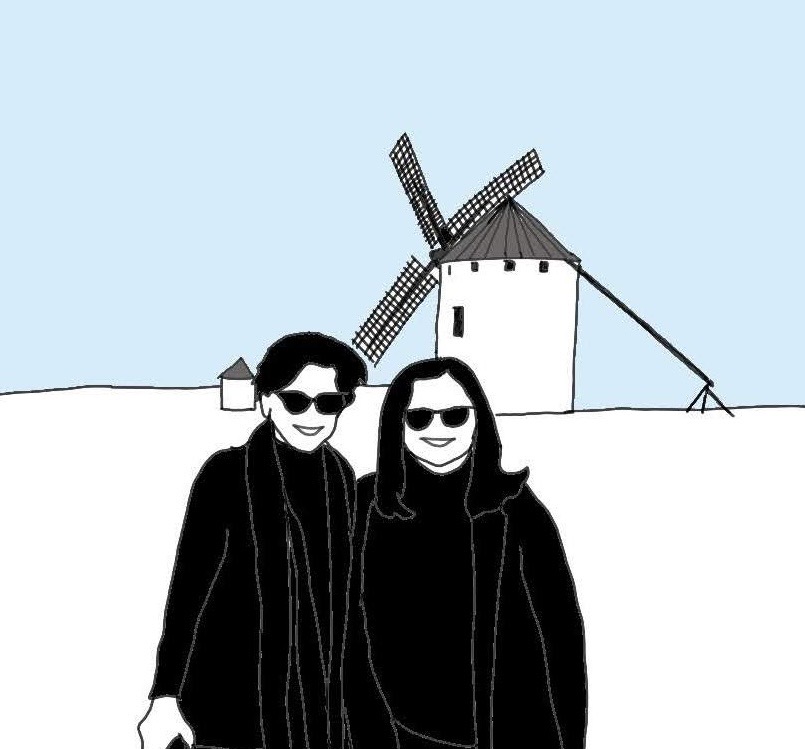
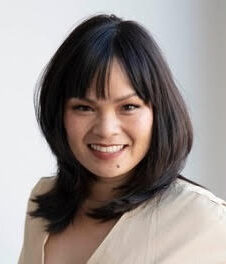 Christina Vo is a writer based in Santa Fe, New Mexico. Her work reflects her commitment to understanding and sharing the complexities of the human experience. Christina’s debut memoir, The Veil Between Two Worlds: A Memoir of Silence, Loss, and Finding Home, demonstrates her ability to weave personal experiences into broader narratives about identity, home, and belonging. Her second book, My Vietnam, Your Vietnam, an intergenerational memoir co-written with her father, was published in April 2024 and recently selected for the Ms. Magazine Most Anticipated Feminist Books of 2024. She has worked internationally for UNICEF in Vietnam, the World Economic Forum in Switzerland, as well as served as a consultant for nonprofits.
Christina Vo is a writer based in Santa Fe, New Mexico. Her work reflects her commitment to understanding and sharing the complexities of the human experience. Christina’s debut memoir, The Veil Between Two Worlds: A Memoir of Silence, Loss, and Finding Home, demonstrates her ability to weave personal experiences into broader narratives about identity, home, and belonging. Her second book, My Vietnam, Your Vietnam, an intergenerational memoir co-written with her father, was published in April 2024 and recently selected for the Ms. Magazine Most Anticipated Feminist Books of 2024. She has worked internationally for UNICEF in Vietnam, the World Economic Forum in Switzerland, as well as served as a consultant for nonprofits. Thursday, August 22nd at 12 – 1pm PDT
Thursday, August 22nd at 12 – 1pm PDT  Debra Eckerling is the award-winning author of Your Goal Guide: A Roadmap for Setting, Planning, and Achieving Your Goals and creator of the D*E*B METHOD® for Goal-Setting Simplified. Debra helps busy professionals get their book ideas out of their head and onto the page … with less stress. She also helps them craft book proposals that keep them organized, focused, and positioned for success.
Debra Eckerling is the award-winning author of Your Goal Guide: A Roadmap for Setting, Planning, and Achieving Your Goals and creator of the D*E*B METHOD® for Goal-Setting Simplified. Debra helps busy professionals get their book ideas out of their head and onto the page … with less stress. She also helps them craft book proposals that keep them organized, focused, and positioned for success.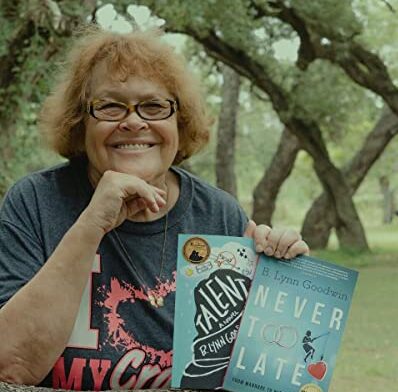
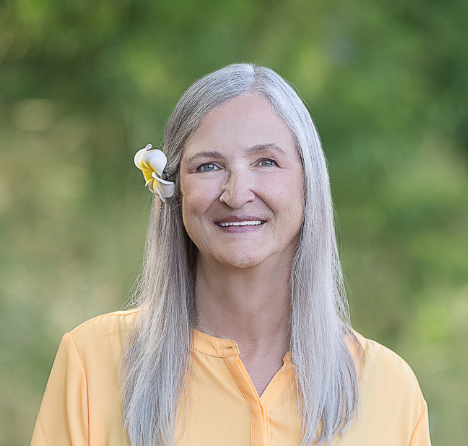 After the deaths of two husbands, as well as the many family members and friends, Emily Thiroux Threatt has much experience in the grieving process and has learned to face life with love, optimism, and joy.
After the deaths of two husbands, as well as the many family members and friends, Emily Thiroux Threatt has much experience in the grieving process and has learned to face life with love, optimism, and joy.
 Peter Rubie has been in New York publishing as an agent, editor, and published writer for nearly forty years. He is the CEO of FinePrint Literary Management, an NYC-based literary agency with 5 active agents, and began in publishing working as a freelance reader and freelance editor for major “Big Six” publishers (as they were then) before becoming the adult fiction editor at Walker & Co. from 1985 to 1991. He became an agent in 1992 and formed his own agency in 1998.
Peter Rubie has been in New York publishing as an agent, editor, and published writer for nearly forty years. He is the CEO of FinePrint Literary Management, an NYC-based literary agency with 5 active agents, and began in publishing working as a freelance reader and freelance editor for major “Big Six” publishers (as they were then) before becoming the adult fiction editor at Walker & Co. from 1985 to 1991. He became an agent in 1992 and formed his own agency in 1998.